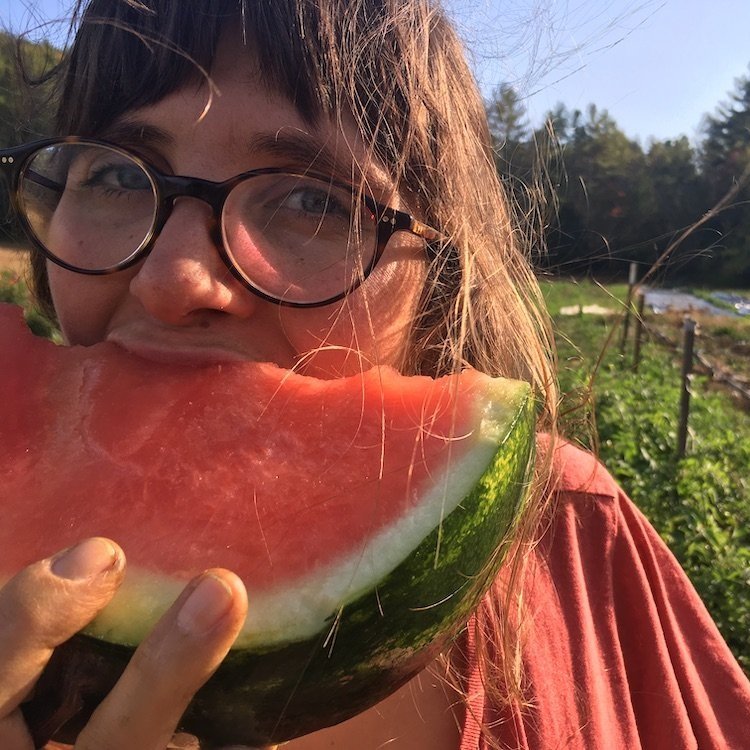Our Story
Milkweed Farm is a small, organic vegetable and flower farm in Westminster West, Vermont, run by Jonah Mossberg and Emily Hartz.
We grow for our 125-member vegetable CSA and a few local grocers and restaurants on just about two acres. We are a diversified farm, growing over 100 varieties of vegetables, ranging from common favorites, like heirloom tomatoes, peas, and cucumbers, to more unique options, like ginger, artichokes, asian pears, and shiitake mushrooms.
At our core, we are humans who care deeply about building resilient local communities and farming is the primary way we do just that. All of the food we grow stays within our local community with our CSA as the cornerstone of what we do.
Jonah grew up in rural Northeastern Connecticut; Emily in coastal Maine. We don’t come from farming families, but we both came to agriculture through a shared passion for good food, feeding people, and having our fingers in the dirt.
When we met in 2017 as employees at a local homeless shelter, Jonah had just started the farm in Brattleboro on leased land after fifteen years working in organic agriculture. Emily quickly became a key member of the business while also continuing to work in public education.
How We Farm
At Milkweed, we focus on building soil biology through a commitment to low and no-till, organic practices.
By soil biology, we mean the life in the soil—the tiny organisms that contribute to the health of the soil. It is our experience that biologically active soils grow healthy plants that are far less likely to be impacted by diseases or pests.
We are dedicated to stewarding the farm’s soil communities by consistently adding organic matter, mineral amendments, and reducing the amount we till in order to preserve and create soil structure.
A central goal of the farm is to produce high-quality, nutrient-dense food while farming in ecological balance with biological, physical, chemical, ancestral and cosmic forces that are at play.
While the farm is not certified organic, the methods we use on our farm adhere to the highest standards of organic production. No genetically-modified seeds, pesticides, or chemicals are ever used on the field.
Where We Farm
We spent our first five seasons bouncing between two short-term land leases in Brattleboro and then Guilford, and finally, in 2022, we had the opportunity to secure a long-term land base for our farm.
We now steward 10 acres of land owned by the Earth Bridge Community Land Trust in Westminster West. The farm was previously known as the Akaogi Farm and was well known for growing vegetables, rice, and asian pears. The land is a beautiful mix of flat fertile ground, orchard, wetland and wild hillside.
While we are deeply grateful we have a place to farm for a long, long time, we also know the complicated and brutal history of colonization on the land we now farm. We sit with a deep acknowledgement and respect to the Abenaki, the original stewards of the place we now call home.
More than a Farm
Farming is about much more than producing food and feeding people. Food and farming are lenses through which we can choose to view and interact with many different intersecting issues.
We are a queer and trans-run farm and it’s important to us that our farm is a safe and welcoming place for all kinds of marginalized people.
Our farm business is centered on the principles of the triple bottom line—planet, people, and profit. Our approach to farming is rooted in that idea, and we are constantly making decisions for our farm that factor in our farm’s social, environmental, and economic impact.
Here at Milkweed Farm, we collaborate with other local farms, donate to organizations working across many social justice issues, host educational groups and workshops, and stand in solidarity with justice-based movements in Vermont and beyond.
If you have an idea for a collaboration, please be in touch!





